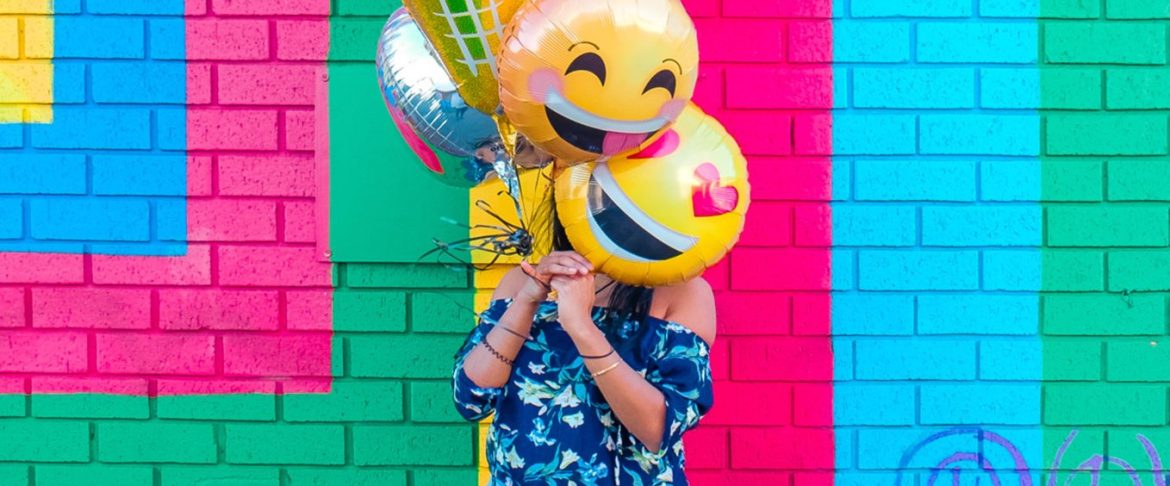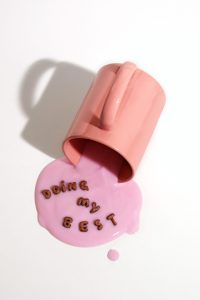Have you ever fallen into the "I'll be happy when..." trap? Many of the people I work with have fallen into this trap, often thinking it will help improve their body image. Essentially, the trap involves setting a goal which deprives you of something nice unless you achieve a particular outcome.
Here are some examples:
- "I'll be happy when I lose weight."*
- "I'll be happy when I can fit into my old jeans."
Sometimes there are particularly nasty variants of the trap that look a bit like this:
- "I'm not going to go to the gym/sit at the beach/go out with my old friends/ etc, until I've lost weight."
Quite a few people believe that goals like the above will help "fix" their body negative body image. But that makes sense, I hear some of you cry! Because if a child does something good, you might reward them with a gold star! So, this is like... the opposite of that. It's the same as punishing a young child for not being good enough...
Oh wait - YOU WOULD NEVER DO THAT TO A CHILD!
Self-fulfilling prophecies: Tell yourself you'll be unhappy and you will make it so.
You would never say that it's appropriate to punish young children just because they don't win at everything they do, or don't look a certain way! But that's exactly what this "I'll be happy when..." trap is about. It's about punishing yourself by taking away nice things if you don't achieve something.
Things get worse when you realise these particular happiness traps are often self-fulfilling prophecies. That is, they create the very problem they are pretending to manage. Let's break it down a bit:
- Depriving yourself of nice things is likely to lower your mood (ie you decrease your happiness)
- You set a goal about depriving yourself of nice things until you lose weight (ie you keep yourself miserable until you lose weight)
- Therefore, you are miserable about your body in its current state (ie, self-fulfilling prophecy fulfilled: I thought I'd be unhappy about my body, and now I've ensured that will happen.)
Low mood and low body image drive up emotional eating.
We can chase this one down the rabbit hole a bit further. By lowering mood, those with emotional or binge eating urges are actually more likely to use food to cope with their negative emotional state.
This happiness trap - which felt so motivating before we looked at it closely - is actually likely to cause low mood, creating a more toxic relationship with body image, and in that way it can make people more likely to engage in emotional eating.
If you say the words "I'll be happy when..." to yourself, you're falling into a trap which could make you feel worse about yourself. When the "happiness" is only allowed to happen after weight loss, this can actually backfire and lead to more emotional eating in some people.
Is it time to question the way you are talking to yourself about your body?
*DISCLAIMER: At Bloom Nutrition & Wellness, we question diet culture and endorse weight neutral health goals. Despite what you might have read, not all weight loss is "good", necessary, or even neutral in outcome. See previous post on "Why you should stop setting weight loss goals for NYE". For many people with eating disorders, weight loss or weight loss goals can be outright damaging both physically and mentally.
© 2023 Bloom Nutrition & Wellness. All rights reserved. Blog posts on the Bloom Nutrition & Wellness website provide information of a general nature only, and cannot and do not take the place of individualised advice from a qualified healthcare professional.



